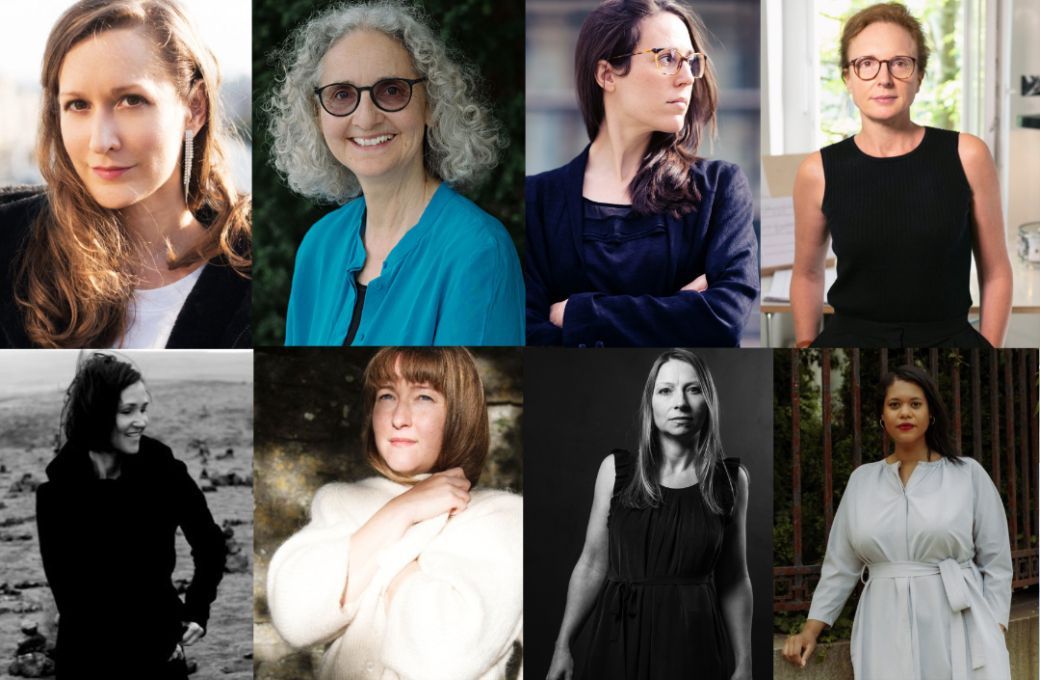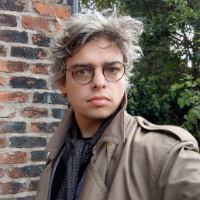According to Bachtrack’s statistics, collected over the past decade, works by women composers have met increasing prevalance in concert halls and opera houses around the world. But the truth is that classical music remains firmly a man’s game. Women are in a minority amongst conductors, soloists, opera directors and choreographers. In the world of dead composers, men dominate and likely will for the foreseeable future.

Fortunately, some composers are alive. This century, women composers have brought to the stage some of the most vital, original and overwhelming new pieces of music – and 2024 looks to be no exception. Here are eight premieres and new works to watch out for this year.
1Mirela Ivičević: Überlala. Song of Million Paths
Inventive, kaleidoscopic, darkly surreal, Croatian composer Mirela Ivičević’s music twists its way through myriad unexpected corners, surprising the listener with strange and uncanny juxtapositions. This year, violinist Ilya Gringolts premieres a new concerto, Überlala. Song of Million Paths on 23rd March with the Brussels Philharmonic, led by Ilan Volkov.
One of a handful of conductors specialising in contemporary music, Volkov has been a been a frequent collaborator with Ivičević, and this new violin concerto can be heard again in the UK with the BBC Scottish Symphony Orchestra at Tectonics Glasgow on 5th May, a festival co-curated by Volkov, celebrating its 11th edition this year.
2Carola Bauckholt: Im Auge des Klangs
Also at Tectonics Glasgow on 5th May is the UK premiere of German composer Carola Bauckholt’s orchestra piece Im Auge des Klangs (“In the eye of sound”). Bauckholt’s music can be quite sonically “pictographic”, in the sense of reaching out from the world of music towards natural and worldly sonic phenomena.
Appropriately, this piece was inspired by the opening bars of With the Dead in a Dead Language from Elgar Howarth’s brass ensemble instrumentation of Mussorgsky’s Pictures at an Exhibition. Yet Bauckholt’s music is hardly deathly, it is concerned with life and flight: in the midst of her delicate soundscapes, birds circle and migrate.
3Clara Iannotta: The purple fuchsia bled upon the ground
On 12th May at Acht Brücken in Cologne, there’s a chance to hear a new piano concerto from prominent Italian composer Clara Iannotta. The purple fuchsia bled upon the ground is written for virtuoso pianist and longstanding modernist advocate Pierre-Laurent Aimard, and Iannotta’s music is always extremely evocative.
Crisp, densely textured, waspish – one of Iannotta’s works is a triptych titled Dead Wasps in the Jam-Jar – her music is like stepping on frozen leaves in the morning (or broken glass late at night).
4Rebecca Saunders: New opera
British composer Rebecca Saunders has been based in Berlin for many years. While there were several UK premieres at Huddersfield Contemporary Music Festival last November, and despite some strong advocates in the UK, such as soprano Juliet Fraser, her music remains unfortunately overlooked in her country of birth. Saunders’ voice and chamber ensemble work Us Dead Talk Love, a collaboration with artist and poet Ed Atkins, was a highlight of HCMF, and she is currently working with Atkins on a related opera, to be premiered at Deutsche Oper Berlin soon (date to be announced).
In February this year, Saunders premiered a new dance work, Hauch#2, a collaboration with choreographer Rafaële Giovanola. A portrait of Saunders’ music with Klangforum Wien can be heard on 31st May at the Warsaw Spring Festival, including her recent piano concerto To An Utterance.
5Anna Thorvaldsdóttir: Metaxis
The Reykjavik Arts Festival opens shortly after, on 1st June, with a new work from leading Icelandic composer Anna Thorvaldsdóttir. Known for her exquisitely judged, haunting orchestral landscapes, Thorvaldsdóttir might be the most accomplished orchestrator of her generation.
This new work, Metaxis, is written for the Iceland Symphony Orchestra, led by Eva Ollikainen, and expands over half an hour, spreading the orchestra out into multiple independent groups, interacting with live electronics, across the wide expanse of Reykjavik’s Harpa Concert Hall.
6Lisa Streich: Trumpet Concerto
It’s hard to neatly describe the music of Swedish composer Lisa Streich. Her music sometimes makes a habit of obsessively dwelling in particular situations – like saying an ordinary word over and over, so as to reveal its strangeness. Her orchestral works Segel and Himmel adopt biblical references for their titles, and obtain their material from spectral transcription of hundreds of chords, often taken from recordings of amateur choirs. Sometimes these chords are “snapped” into existence by a whip, other times they creep in surreptitiously.
Yet also present in Streich’s work is another tendency, something absentminded, distractible, curious and funny. Streich’s music can be at turns both deadly serious and playful – perhaps “deadly playful” is the right description. A new trumpet concerto for Simon Höfele will be presented by WDR Sinfonieorchester on 22nd June, in Cologne.
7Charlotte Bray: A Sky Too Small
Comparing the music of Charlotte Bray to some of the other composers mentioned above can give a sense of the extent of stylistic divergence between the UK and continental Europe. Bray’s music is stylish and crystalline – but also derived from a different musical tradition, one that is also home to her mentors Oliver Knussen and Mark-Anthony Turnage. This music is dramatic, rhetorical and suggestive, but eschews the dark Unheimlichkeit of Saunders or Streich.
This year has already seen an orchestral premiere from Bray in February, A Dark Doorway, with the Deutsches Symphonie-Orchester and Robin Ticciati, and another orchestral work, A Sky Too Small, will be premiered by Klaus Mäkelä and the Orchestre de Paris at the Festival d’Aix-en-Provence on 13th July.
8Hannah Kendall: He stretches out the north over the void and hangs the earth on nothing
Hannah Kendall’s music comes from another angle again. Growing up in London to a British-Guyanese family, in its musical material and language, Kendall’s music might have certain aural similarities to Bray’s (they both trained at the Royal College of Music). Yet its political register and overall stance in the world is very much Kendall’s own, and greatly distinctive.
In August, Kendall’s new work, He stretches out the north over the void and hangs the earth on nothing, is presented by the Festival Orchestra of Lincoln Center, conducted by Jonathon Heyward. Its title, a line from the Book of Job, gives a sense of this piece’s mood. Job describes God’s destructive power, the previous verse reading “Sheol is naked before Him, And destruction has no covering.” Kendall’s recent ensemble piece, Shouting forever into the receiver, is a deep and affecting work about the suffering of the African diaspora – a topic that Kendall has explored in other powerful recent works too.


